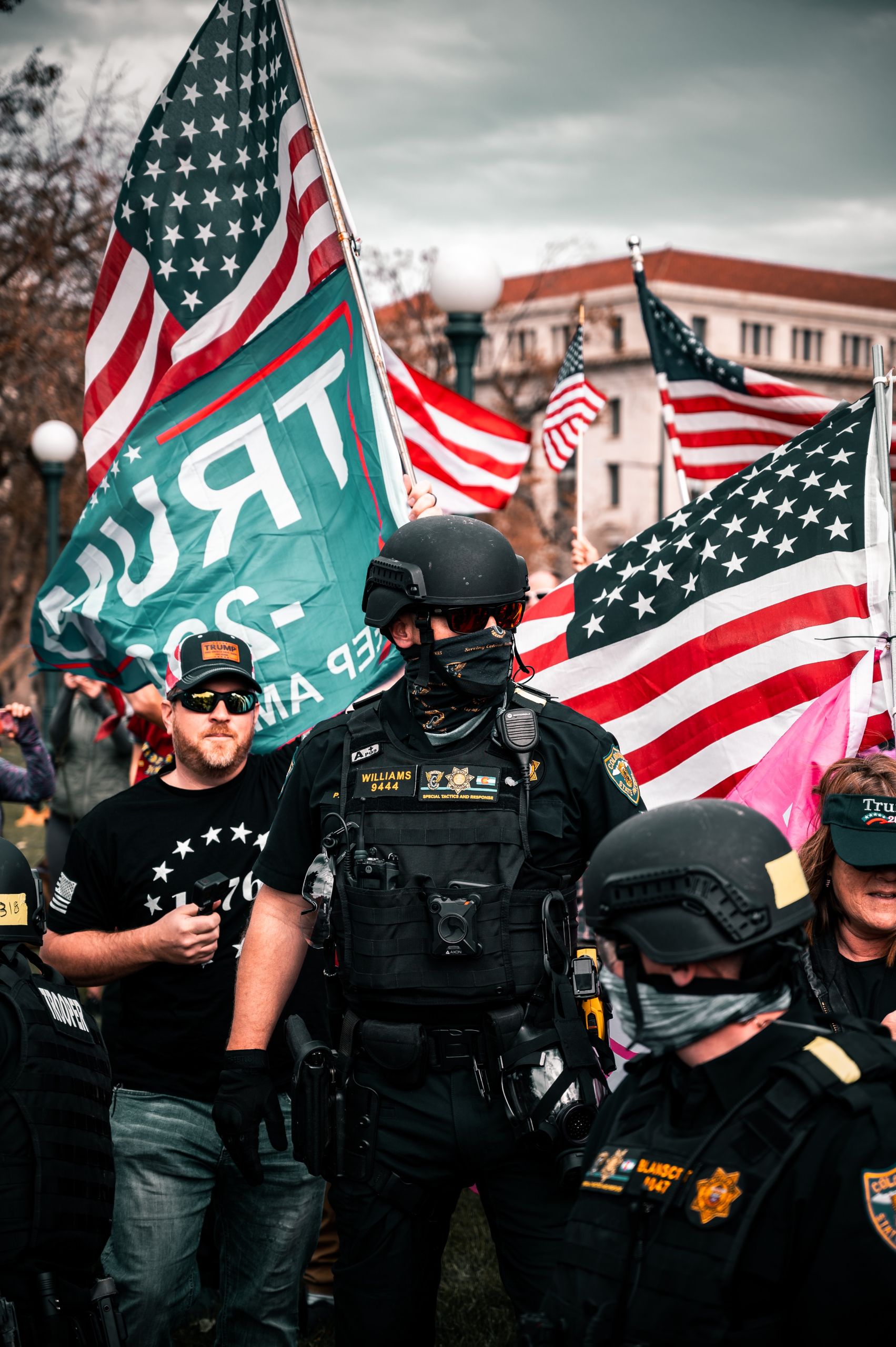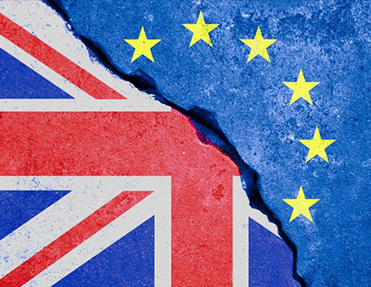Managing Culture Wars, Tribalism & Disinformation
Across the world, from Europe to America, and Brazil to China, populist actors have been rousing people against each other and ‘the Establishment’ in a wave of divisive nationalism, disinformation and polarisation. Their goals have been to gain power by tapping into discontent with existing systems, processes, institutions and public figures. They consolidate influence through patronage, altering the political, electoral and information environment and eroding accountability.
Public trust in politics, media and science and democratic institutions in countries like UK, US and Germany are now at an all-time low. This trend escalated in recent years through rising inequality and social divides, decline in living standards and purchasing power, and a range of crises and scandals. These weaknesses were exploited by the current wave of populists and extremists into a war on liberalism and democratic institutions including a so-called “elite” of experts, intellectuals, mainstream media and socially mobile professionals.
Social media has accelerated the spread of narratives that pit sections of the populace against each other along ever-evolving dividing lines. Every social debate is turned into a question of core identity and values and a test of nationality and patriotism. The stakes have been raised so high and means of communications so polarised that reasonable, balanced and informed debate is hard to find. The concept of truth has become subjective as people base their judgements on their own limited experience and that of their echo chamber, without verifying facts or exploring other perspectives.
Many people are unaware their rights and national stability are at risk. Others are all too aware and coming together in various movements across the globe to counter threats to democracies, social cohesion and cross-border cooperation.
We are consulting renowned experts and politicians from across Europe, UK and US to explore the political science and tactics behind today’s culture wars, as disruptive forces exploit fault lines and grievances to polarise our societies by weaponizing issues like immigration, the pandemic, climate change and racism.
We discuss the use of disinformation and conspiracy theories, the appeal of simplistic and misleading solutions, partisanship and identity politics – all amplified through distorting social media, partisan media outlets and new groups and think-tanks.
We debate ways to forge effective communications and fight disinformation, restore rational public debate and rediscover common ground through deliberative democracy.
We explore how to influence political discourse to encourage healthier fact-based debate, confront far-right threats, restore belief in liberal democracy and globalization, and plug the gaps between governing institutions and their populations.
Below are some comments from our sessions about the problems and solutions. The US 2020 election and Brexit were used as case studies, with insights shared by representatives from governments, international organisations, academia and grassroots campaigners.
The DANGERS OF DISINFORMATION & DIVISION
“The issue of tribalism and manipulation is fundamental because if we can’t stop our societies dividing still further, then we can’t get everyone behind a common agenda to face future challenges. If we can’t agree facts or priorities, how can we share the same reality or society?”
“We are in a systemic conflict between democracy and non-democracy – this is like the Reformation age where people held beliefs so strongly that science and facts did not sway them.”
“Disinformation is at the heart of the culture wars. We have to avoid the sort of media presentation that it’s a Punch and Judy show. There is an objective truth and a context to events and facts that needs to be communicated. And if we don’t start from that, then we can’t solve the information problem and we can’t address the culture wars either.”
“You have a group of people driven by need for chaos, who just want to watch the whole thing burn, especially institutions or elites they think are disdainful of them. And so they share a lot of misinformation, spread at huge scale by social media.”
“The reason that hyper-partisan leaders and authoritarians are rising is by leveraging pre-existing polarization caused by the behaviour of elites, media coverage, economic factors and identity conflict.”
“Polarisation is the process of othering, seeing the world through a lens of ‘us and them’. Disrupters then layer in aspects of morality to create political sectarianism, because what’s happening in highly polarized countries is similar to traditional conflicts determined along religious grounds.”
“This is a crisis of trust as much as a crisis of echo chambers: people have lost complete trust in the other side as well as the very institutions that provide factual information, causing them to burrow into different informational ecosystems, trusting only partisan voices and attacking distrusted media. This toxic cocktail of behaviours, imbued with issues of morality and values, has entrenched polarisation and could even lead to violent conflict.”
“We didn’t take seriously enough the risks inherent in new media environments as we quickly created a system where the rewards to the platforms and their structures reinforce biases of cognitive dissonance. So now we fight across different lines on social media, as there are few other spaces where we come together for debate.”
“Our democratic processes are misfiring. It’s part of the story of what’s feeding the populist surge. We need to look at reviving the quality of European democracy across several dimensions – political, cultural, psychological, economic and digital.”
Polarisation in America

Political polarisation in the US continues to play out in a febrile environment as former President Trump faces a number of civil and criminal trials. Trump supporters are caught up in a swirl of conspiracy theories and exaggerated grievances about stolen elections, patriotism, race and identity politics, exacerbated by right-wing media, Republican influencers and Trump himself. Democratic supporters call for justice and a block on Trump’s return to power which they fear would further destabilise the country. Some political scientists cannot see a way out of this deep polarisation.
“The scale of domestic disinformation in the US is drastic and underreported.”
“The 2020 US presidential campaign was not so much about new tactics, but the result of long-term investment in influence campaigns that saw pro-Trump right-wing media and messengers achieving greater credibility and reach, up to the level of the NYT, CNN and other established media outlets.”
“Just after the US election, Trump tweeted 300 times about voting fraud and conspiracy with each message reaching over 84 million people and being picked up by mainstream media. So, we can’t depolarise if you have powerful people with huge platforms and media platforms pushing in the opposite direction.”
“In the US, contempt for the other party is probably the most powerful predictor of political behaviour in voting today. For Republican supporters, racial resentment is increasingly a factor.”
“Trump supporters have doubled down in their support for him. It’s too painful to admit they were wrong. The most we can hope for is that they will be drawn to another less extreme leader further down the line.”
The UK & Brexit

“In UK, the divisions across cultural lines, reinforced through Brexit, are now much stronger than across economic left-right lines.”
“It is nonsense that mainstream media and opinion-formers in UK have been biased towards the liberal left and suppressed right wing views. There are more British papers on the right than left. People who pursue this argument confuse truth with balance. In general, the inquiry into truth is often inquiry into power and money and wealth, which will often appear to be a liberal left point of view.”
“Before the 2016 referendum, there was a real lack of understanding about the EU among BBC journalists. We were made to do a survey and quiz, but afterwards many said they still didn’t understand what the EU did. So how on earth could we expect journalists to explain the issues competently to the wider population? We haven’t had enough education in the UK about how the EU connects to us and affects our society.”
SOLUTIONS
1
Better evidence-based understanding of the effects of polarisation and changing attitudes rather than assumptions
Read more
2
More systemic efforts to combat disinformation and bust myths including ways to regulate social media, support balanced media coverage and sensitize the population.
Read more
3
More consensus politics, bi-partisanship and alliances, and long-term thinking to tackle major challenges
Read more
4
More ways to bridge gaps between elite and people and restore trust in democracy through accessible institutional communications, better economic policies and ethical capitalism; more emphasis on political ethics, accountability and reform to ensure more effective representation
Read more
5
More use of innovations in participatory democracy at the local level, ensuring results percolate up to political decision-makers and policy development; more mediation and values-based dialogue that promote common ground
Read more
6
More future-focused strategizing between players in shaping a more responsive democracy in line with realities such as technology, environmental demands, voter concerns and policy needs.
Read more

